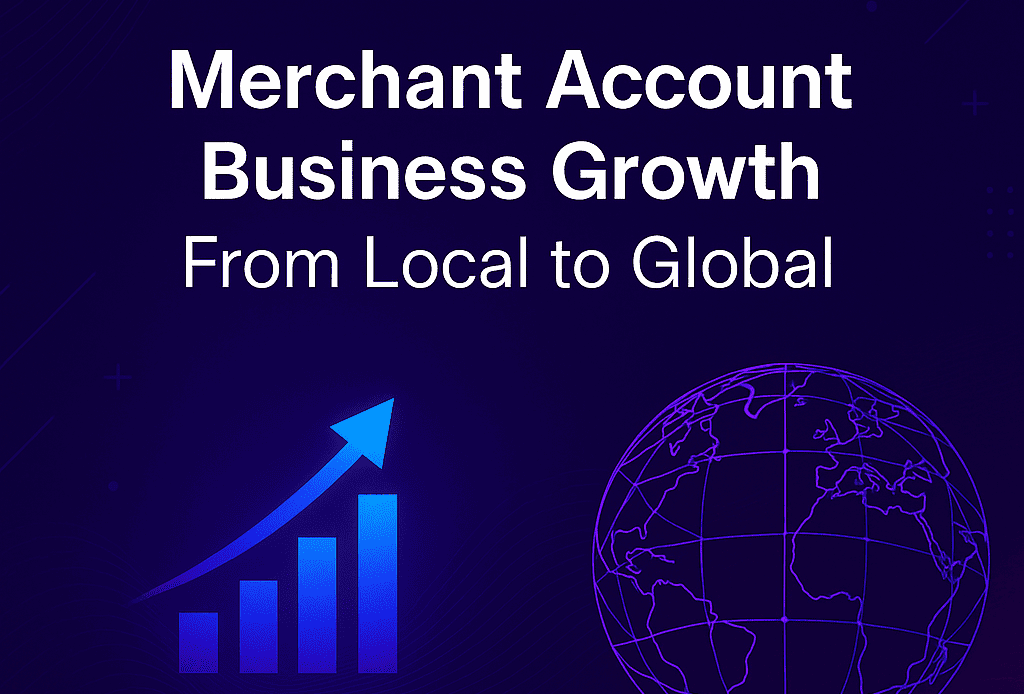Every business that wants to grow faces the same challenge: how to scale revenue without losing control over payments, compliance, and cash flow. The solution lies in a tool that many companies still underestimate — the merchant account. Today, the term merchant account business growth reflects how this financial instrument drives expansion, supports global sales, and protects margins.
In the modern economy, growth is impossible without seamless payments. Customers expect to pay with cards, local transfers, or even crypto — no matter where they are. Businesses that cannot provide this flexibility lose deals every day. Those that integrate a merchant account as part of their growth strategy unlock new markets and secure long-term success.
Merchant Accounts as Growth Engines
A merchant account is not just a bank product. It is the backbone of international commerce. Unlike a standard account, it is built to manage:
- Card acquiring with high approval rates.
- SEPA and SWIFT transfers for global coverage.
- Multi-currency payments without excessive FX costs.
- Fraud prevention and chargeback management to protect revenue.
This is why forward-looking companies treat their merchant account as a growth engine. When payments flow without friction, sales increase, trust builds, and new regions open. This is the foundation of merchant account business growth.
Four Pillars of Merchant Account Business Growth
- Revenue Expansion
Customers want choice. Accepting multiple payment methods reduces cart abandonment and increases conversion. - Global Reach
SEPA for Europe, SWIFT for worldwide transfers, and crypto for borderless settlements. A merchant account connects them all. - Liquidity and Cash Flow
Fast settlements mean reinvestment into marketing, operations, and scaling. Delays kill growth. - Compliance and Trust
AML, KYC, and PCI DSS are not just obligations. They are signals of reliability that attract banks, partners, and investors.
Together, these four pillars form the framework of merchant account business growth.
Industry Case Studies
Different industries demonstrate the business impact of merchant accounts:
- E-commerce: International checkout options drive higher order volumes.
- SaaS and subscriptions: Recurring billing is stabilized, churn decreases.
- Travel and airlines: Chargeback risks are reduced, customer confidence grows.
- High-risk sectors (gaming, forex, CBD): Access to reliable processing enables business survival and expansion.
Each example proves that payments are not just transactions. They are growth levers.
Building a Merchant Account Growth Strategy
To achieve real merchant account business growth, companies must:
- Choose providers with global coverage and risk expertise.
- Monitor KPIs such as approval rates, settlement times, and chargeback ratios.
- Integrate payment APIs and gateways seamlessly into platforms.
- Use compliance as a business advantage, not just a checkbox.
This structured approach transforms payments from an operational cost into a strategic asset.
The Future of Merchant Accounts
Innovation continues to reshape growth opportunities:
- AI fraud detection improves approval rates and reduces losses.
- Instant payouts provide liquidity within minutes, not days.
- Stablecoin and crypto integration eliminates borders and reduces FX risks.
- One global account instead of fragmented regional setups streamlines operations.
Businesses that embrace these innovations will define the next wave of merchant account business growth.
Sharpay: Business-First Merchant Accounts
At Sharpay, we design merchant accounts for growth-focused companies. Our solutions combine SEPA, SWIFT, card acquiring, and crypto processing in a single, compliant platform.
We deliver:
- Fast approval for high-risk and global industries.
- Secure infrastructure with full AML, KYC, and PCI DSS compliance.
- Flexible payments that support international expansion.
Sharpay is not just a payment provider. We are a growth partner, enabling true merchant account business growth for companies ready to scale.


